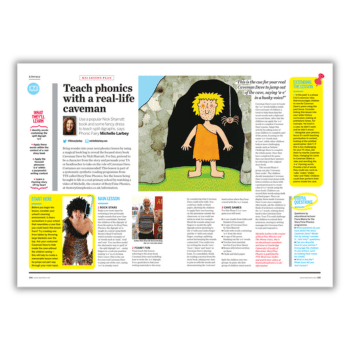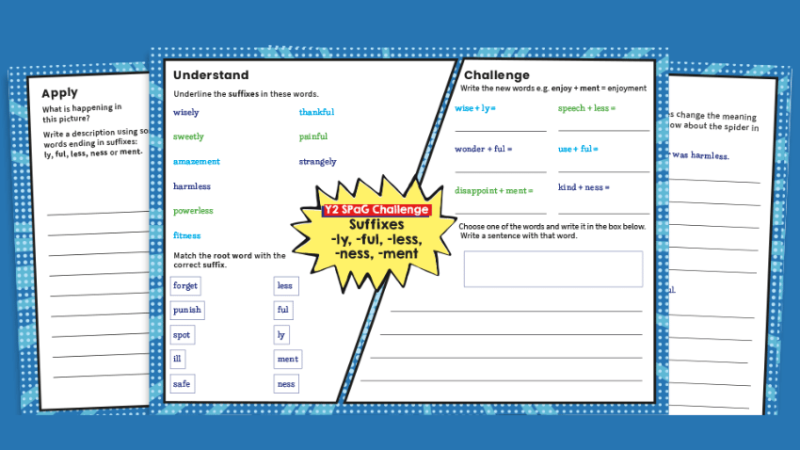Phonics Screening Check – 6 last-minute prep ideas

Worried about the imminent Phonics Screening Check? Don’t panic – here are six last-minute prep ideas to get you through…

The Phonics Screening Check (PSC) has come around so quickly! It’s an opportunity for every pupil to demonstrate their progress in literacy, but can feel overwhelming. Here are six way you can successfully prepare every learner, whatever their background, ability or need.
Engage through enjoyment
Phonics can be lots of fun, and a great way to really ignite a love of words. Pick teaching materials that are bright, colourful and engaging, to hold their attention fully in each session.
Use positive messaging too. As momentum builds to the Phonics Screening Check (PSC), glowing feedback for learners who need additional support could be the spark they need to stay motivated.
Try out technological solutions
There is a growing range of new edtech solutions for phonics learning in the market currently, many of which support inclusive learning.
I would recommend choosing eBooks with ‘Read to Me’ functions, which allow children to make progress when they are stuck by reading the text back to them. This is a great tool for all learners, including those with SEND.
Interactive activities can also be helpful for pupils, as well as for teachers. These provide the ability to test understanding online through fun educational activities that motivate children while they learn.
Pre-assess and adapt for interventions
Your school may have already increased their phonics sessions to two a day, but even with this extra time, some pupils may benefit from further interventions.
Carry out some mock tests; not only will they help prepare children for the PSC but they can help you to further identify those that would benefit from additional, targeted support.
But remember, keep the mock tests as real as possible. Use them as an opportunity to familiarise your pupils with what is to come.
Team up with parents and families
It is not too late to get families onboard, and encourage some extra at-home revision. Invest some time in arranging a dedicated meeting with parents/carers, either in-person or via video call.
This can serve the dual purpose of alleviating any potential concerns, as well as outlining the significance and purpose of the PSC.
Let them know what will happen next, and explain how this fits with their child’s developing fluency.
Families who understand this are far more likely to offer extra-curricular help to children. Where relevant, consider making printable worksheets and eBooks available too.
Think of different ways to practise
Make phonics more interesting by trying quick and bite-size revision sessions.
Try putting a set of grapheme cards by the classroom door, for instance, giving pupils access to a quick revision session while they are lining up before breaktime.
Or add some fun phonics revision to registration, or to round off a day in class.
Review the diversity of your resources
Are all your pupils seeing themselves and their communities in the resources you use? Are all backgrounds, identities and abilities represented, linking their personal experiences with the world of literacy?
You may have heard this many times but including diverse stories and imagery in phonics resources and decodable reading books really does help, lessening feelings of alienation among underrepresented groups of pupils.
Look for resources created by diverse authors from diverse backgrounds; it can make a difference.
And don’t forget…
State-funded infant schools, primary schools, junior schools, special schools or pupil referral units working with primary-aged children are eligible to apply for up to £9,000 of extra funding to improve their phonics offering for every learner!
It could be yours – but your school will need to act quickly – the deadline is the end of the summer term! You can apply through the government’s English Hubs initiative with successful schools being able to use their money to purchase literacy resources, including teaching materials, decodable books, CPD and more.
Act now and prepare your school – and your pupils – to succeed in phonics for years to come.
Nicola Romaine is the primary literacy adviser for Pearson. For more information on phonics and funding, visit Pearsonprimary.co.uk/EnglishHubs








